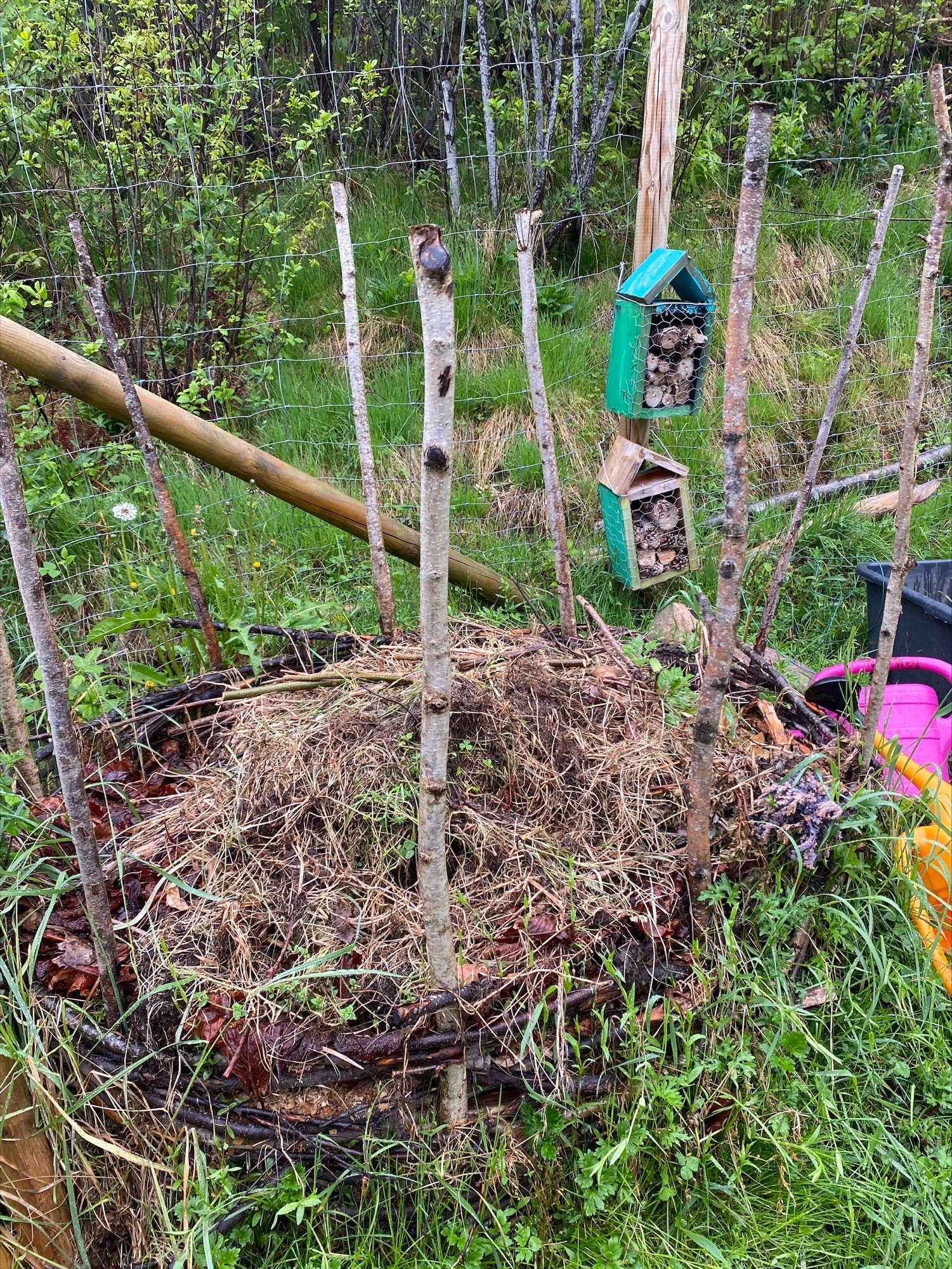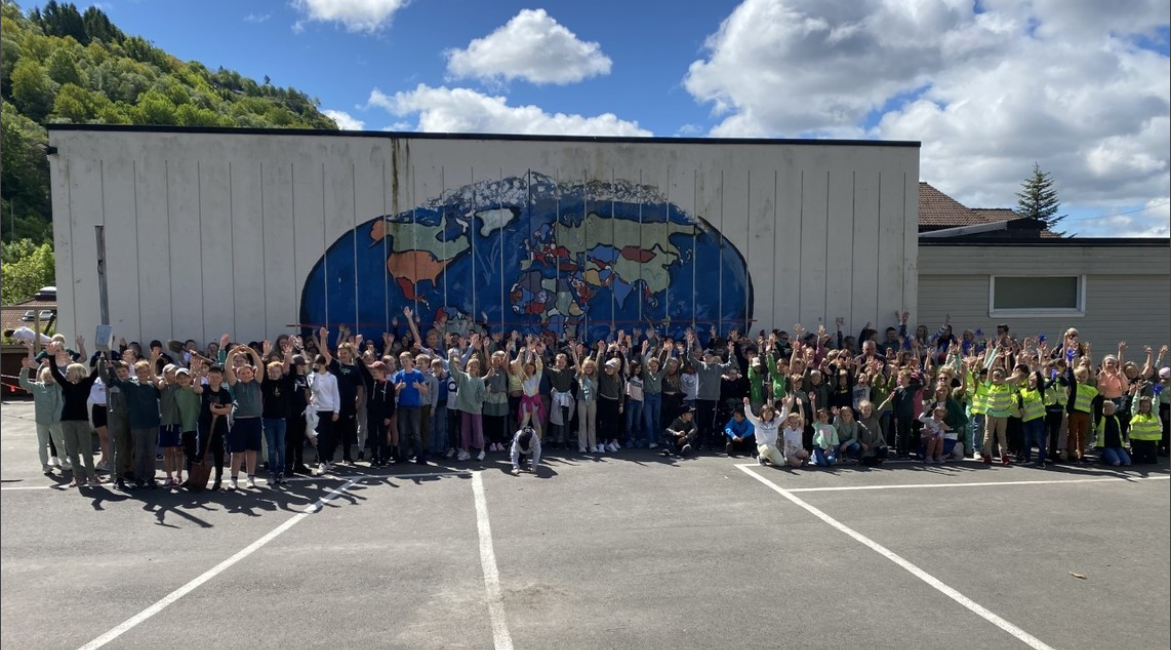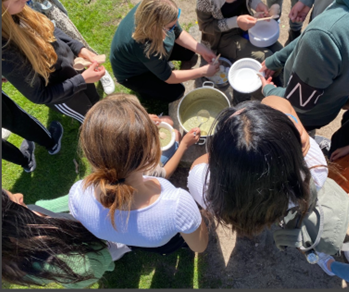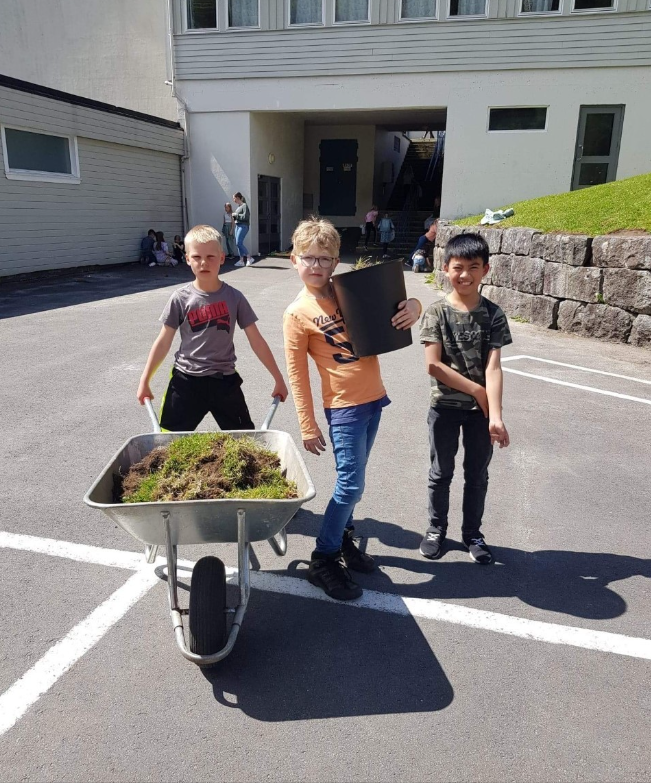At Liknes Primary School in Norway, over 200 students ages 6-13 and 20 teachers worked together to transform their relationship with sustainable food consumption. In their Alcoa W5 project, Kitchen Garden, the students collaborated on growing, foraging, cooking, and enjoying their own local food!
The idea for the Kitchen Garden project arose when students chose to focus on the themes of sustainable food production/consumption and biodiversity as they worked towards their first Green Flag. The school already had a kitchen garden before the project, but it was challenging to involve the whole school and give everyone ownership. The Eco-School framework and the W5 project gave them the tools needed to transform the garden while successfully involving the whole school in the process. Even now, after a year of implementation, the excitement of the students continues!
Preparation for the garden was done through school-wide collaboration between students and staff. Approximately 250 edible plants were planted. These included several types of kale, brussels sprouts, potatoes, carrots, leek, onions, turnip, lettuce, pumpkin, peas, sunflowers, marigolds, and tagetes.
In addition to planting and harvesting from the garden, there were several supporting activities to their project. The seventh-grade students went to the local seashore to harvest another delicious local ingredient, seaweed, that they used for cooking. Students also foraged wild nettles which they made into a delicious soup that everyone had the chance to enjoy - even the school principal! In connection with the topic of sustainable consumption, fourth graders visited a renovation site to witness an example of sustainable waste management.
On June 3rd, at the end of the term, the school held an Activity Day to celebrate the progress achieved so far towards the Green Flag award and participation in Alcoa W5. The celebration included a variety of activities for different age-groups: planting pollinator-friendly flowers in the school garden, spending time in local natural surroundings, a litter clean-up, a student curated art exhibit from recycled materials, and a climate friendly meal of nettle soup.
“The Activity Day was a fun day that inspired the students and teachers to do something positive for our school and the Environment. We are very happy that we are now making progress!” -Anne Hobbesland Eftestøl, teacher
As this project was one of the first Eco-Schools projects done at Liknes, it was simultaneously an opportunity for students and staff to practice using the Seven Steps in planning, implementing, and evaluating their progress towards their sustainable development goals. Through the Kitchen Garden project, students gained conceptual, emotional, and behavioural knowledge about the planting process, climate neutral meals, and the value of being connected to their local environment.
The Alcoa W5 project activities at Liknes Primary School support the following SDGs:





